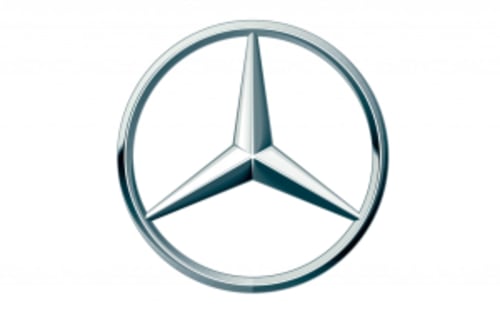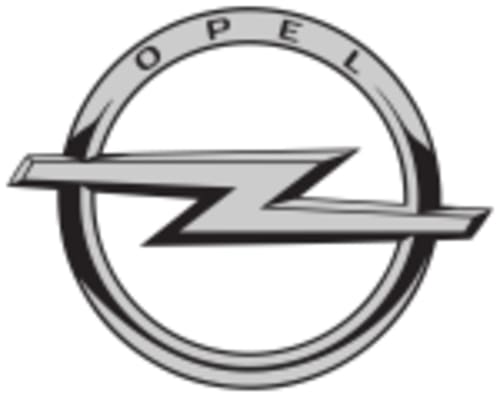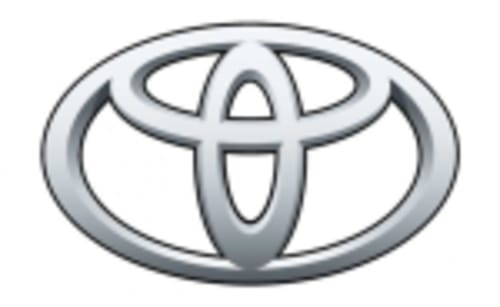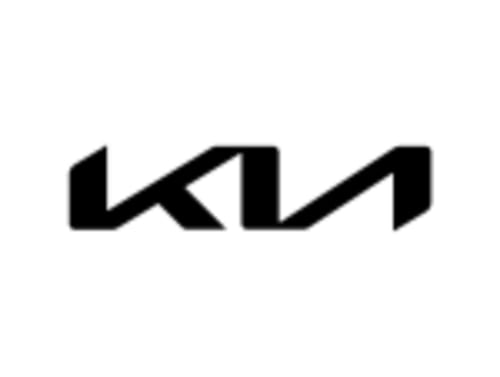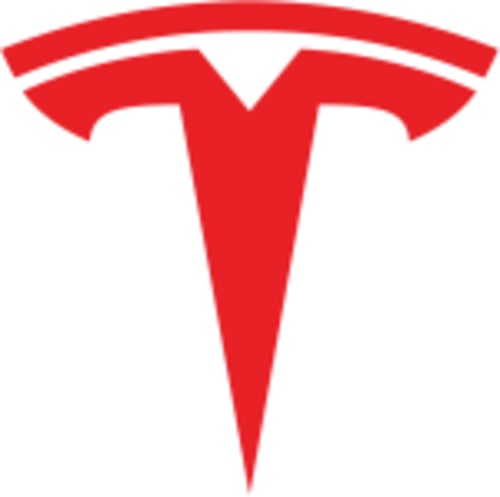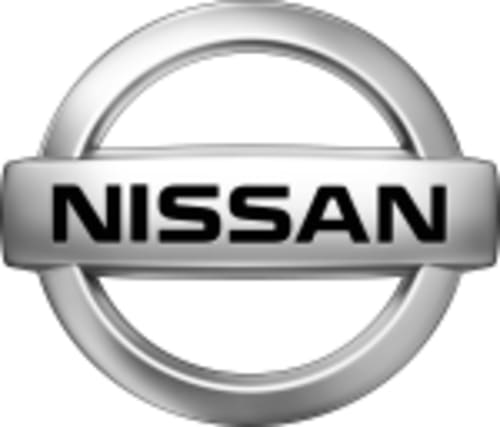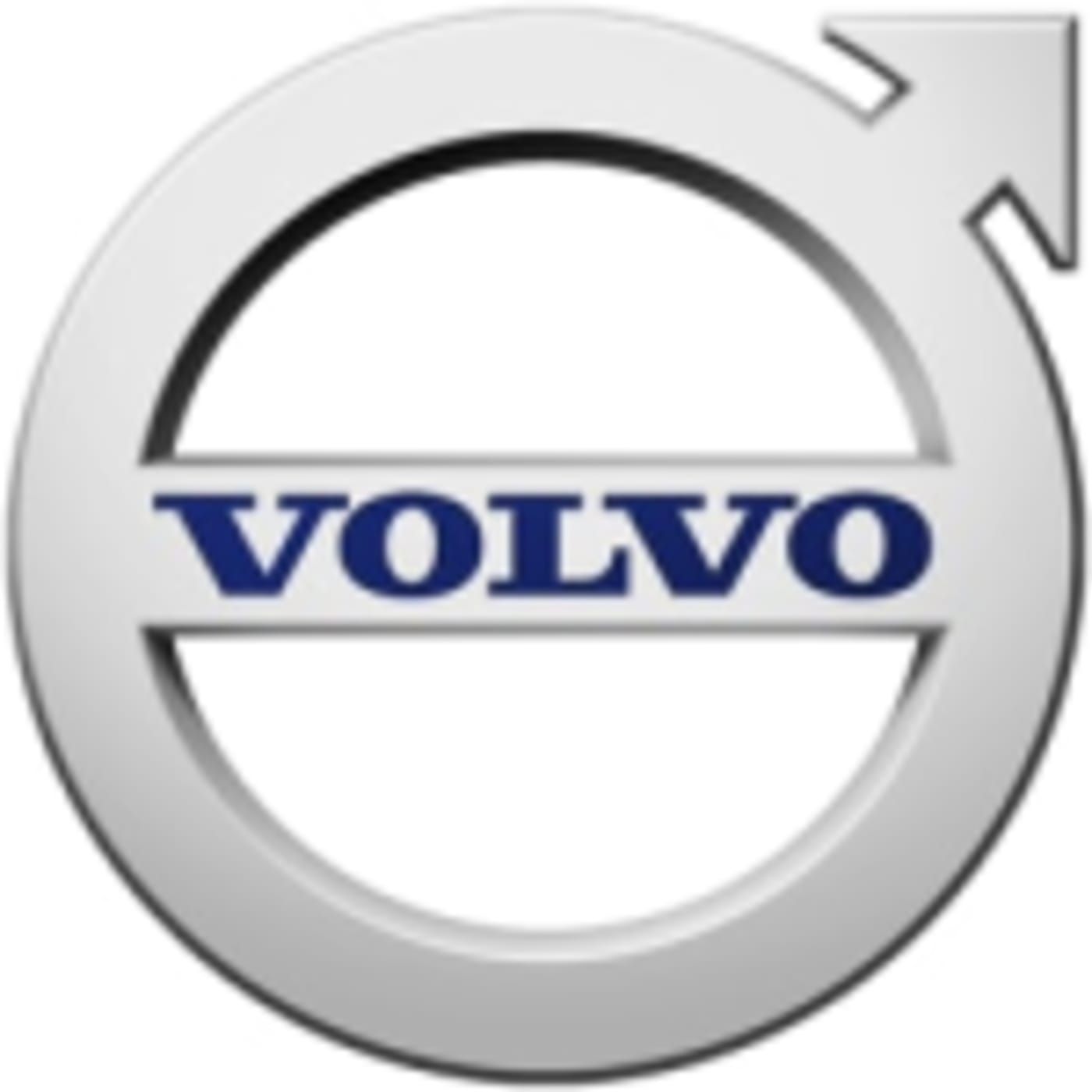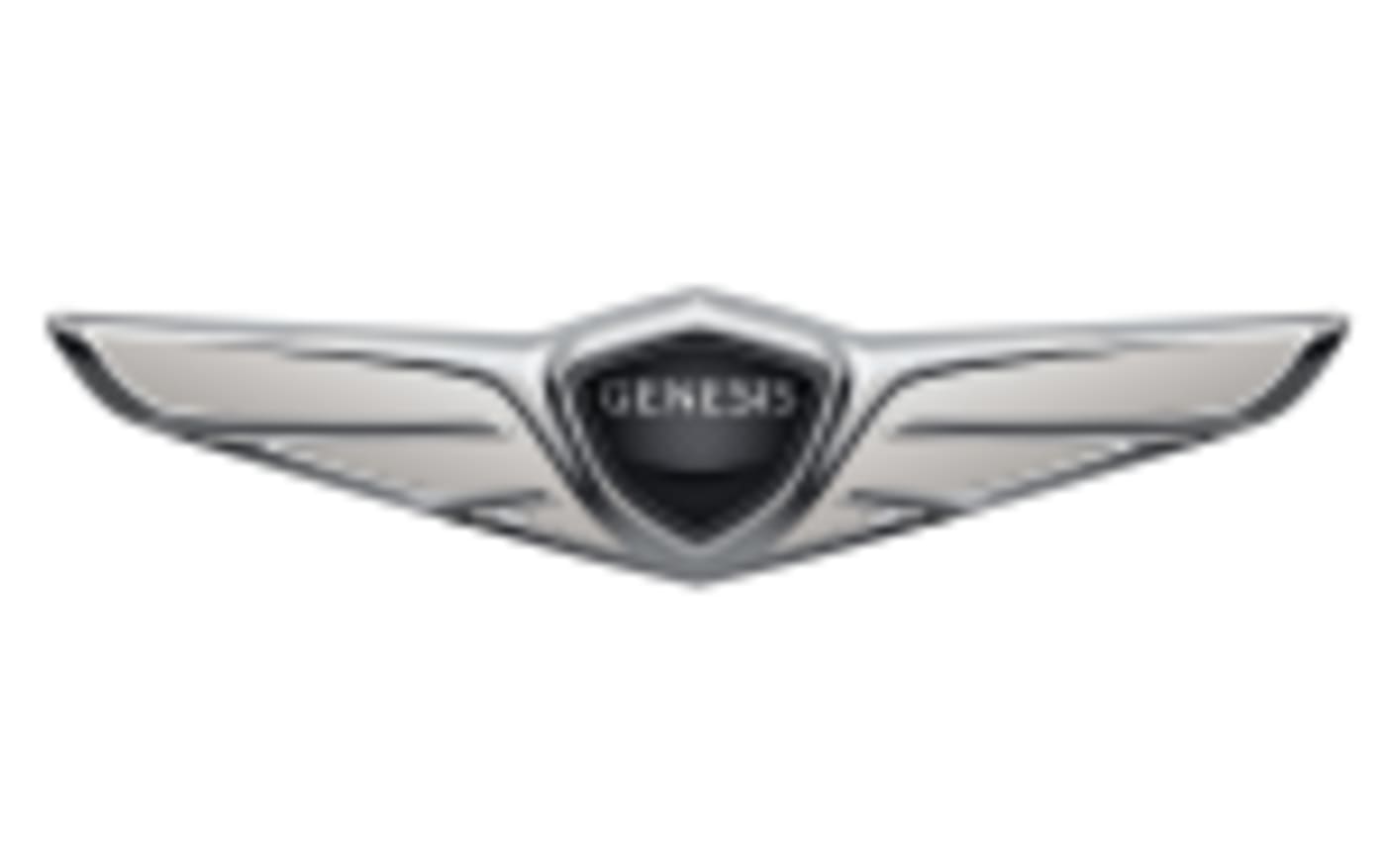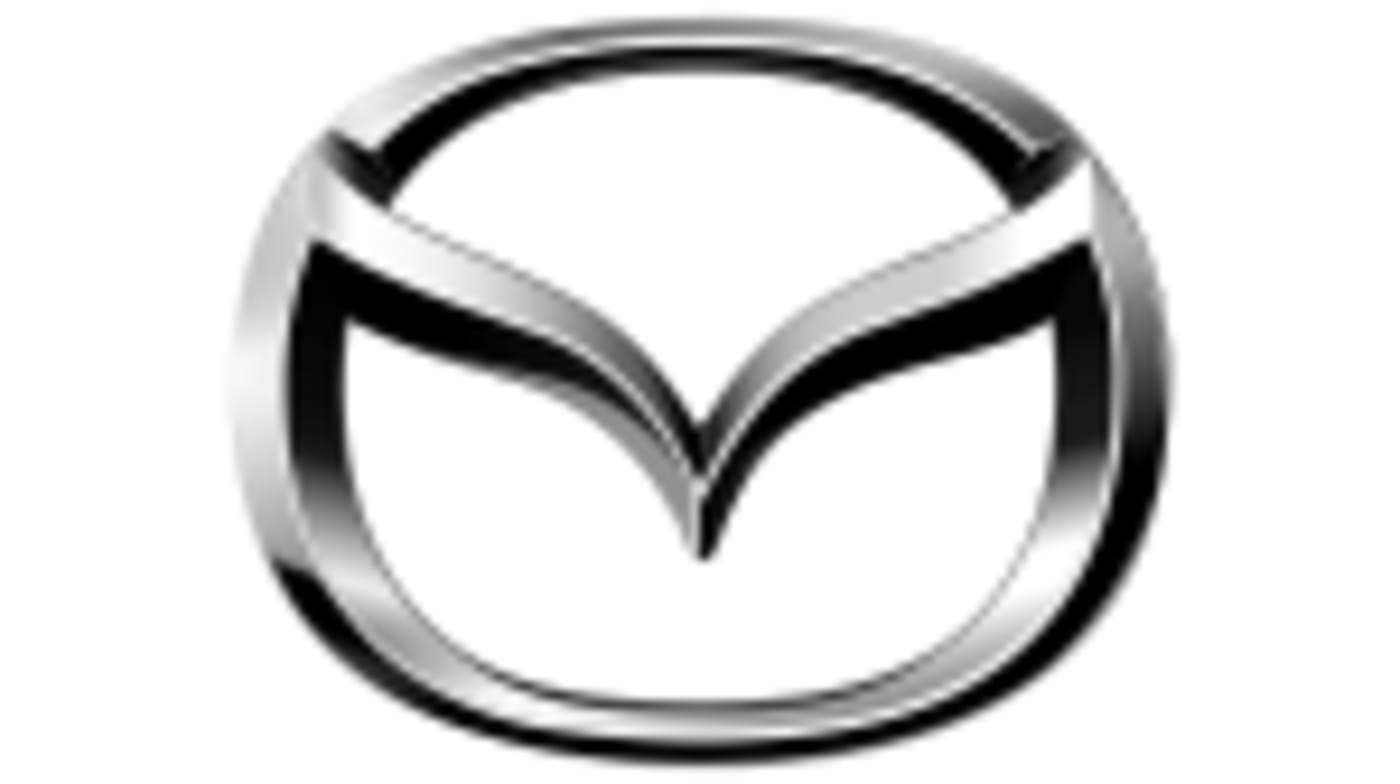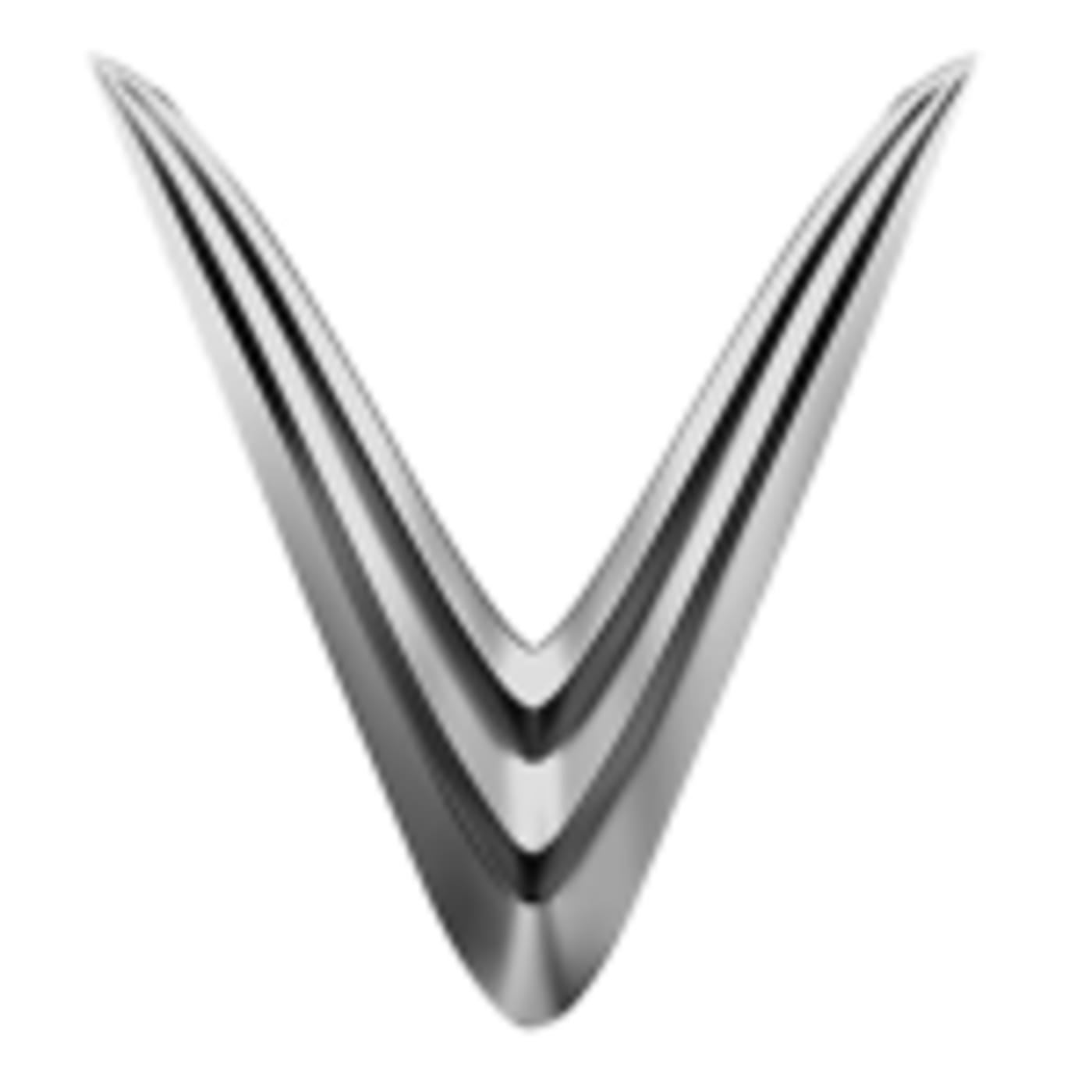Information and electric vehicles of the [object Object] brand
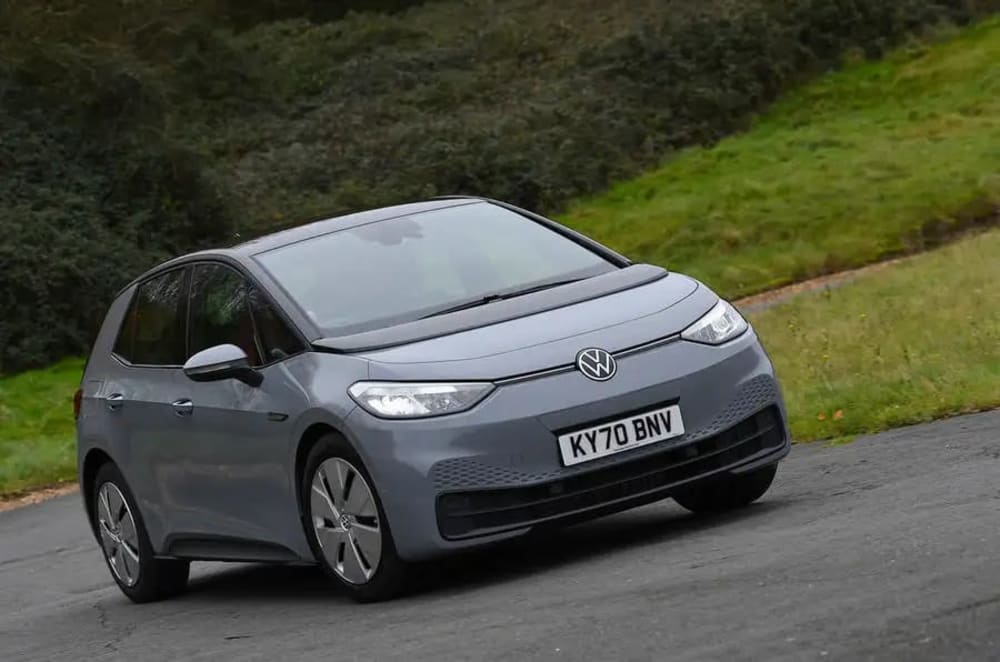
![[object Object] logo](https://res.cloudinary.com/donyiousk/image/upload/w_80/f_auto/c_scale,w_500/v1/car/ktwhhjzrpumkwelqrbvx)
Volkswagen
The future of driving is electric.

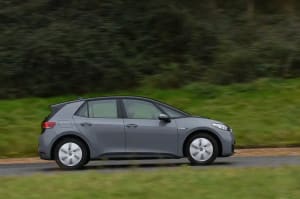
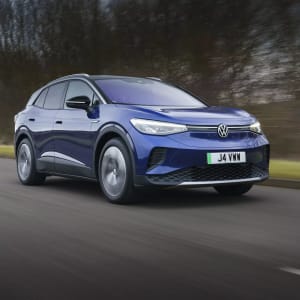
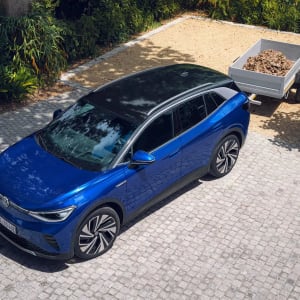


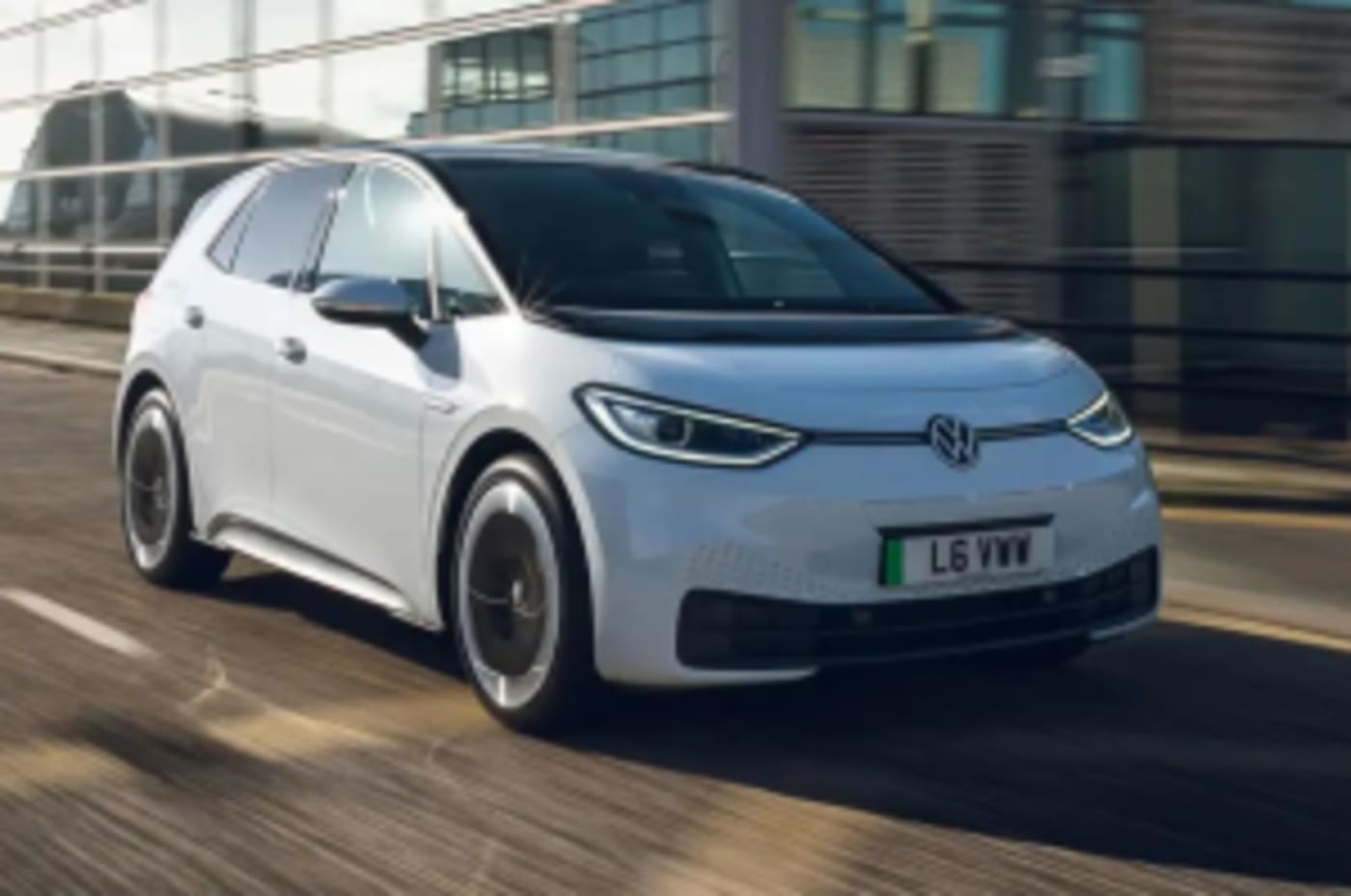
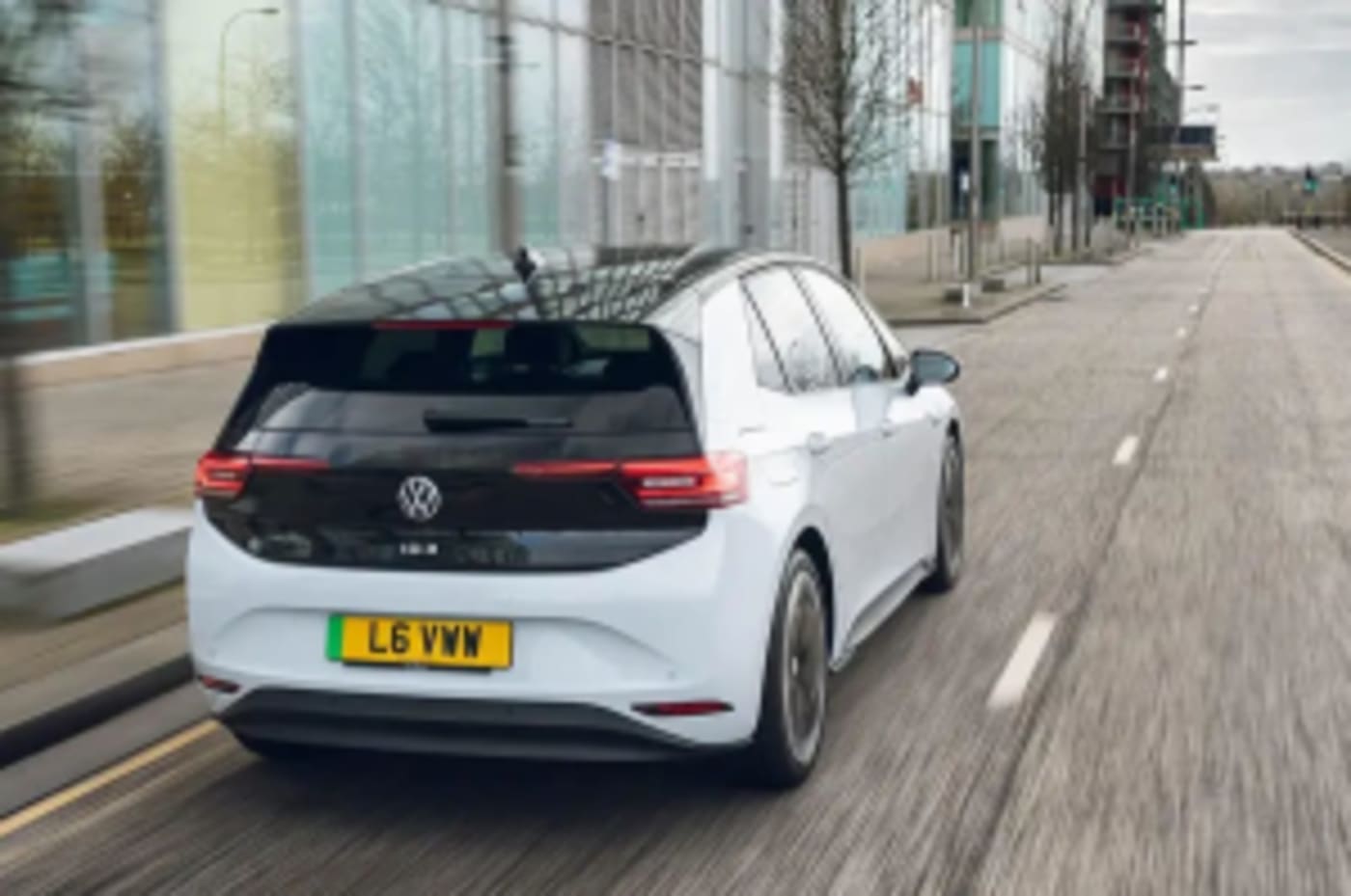
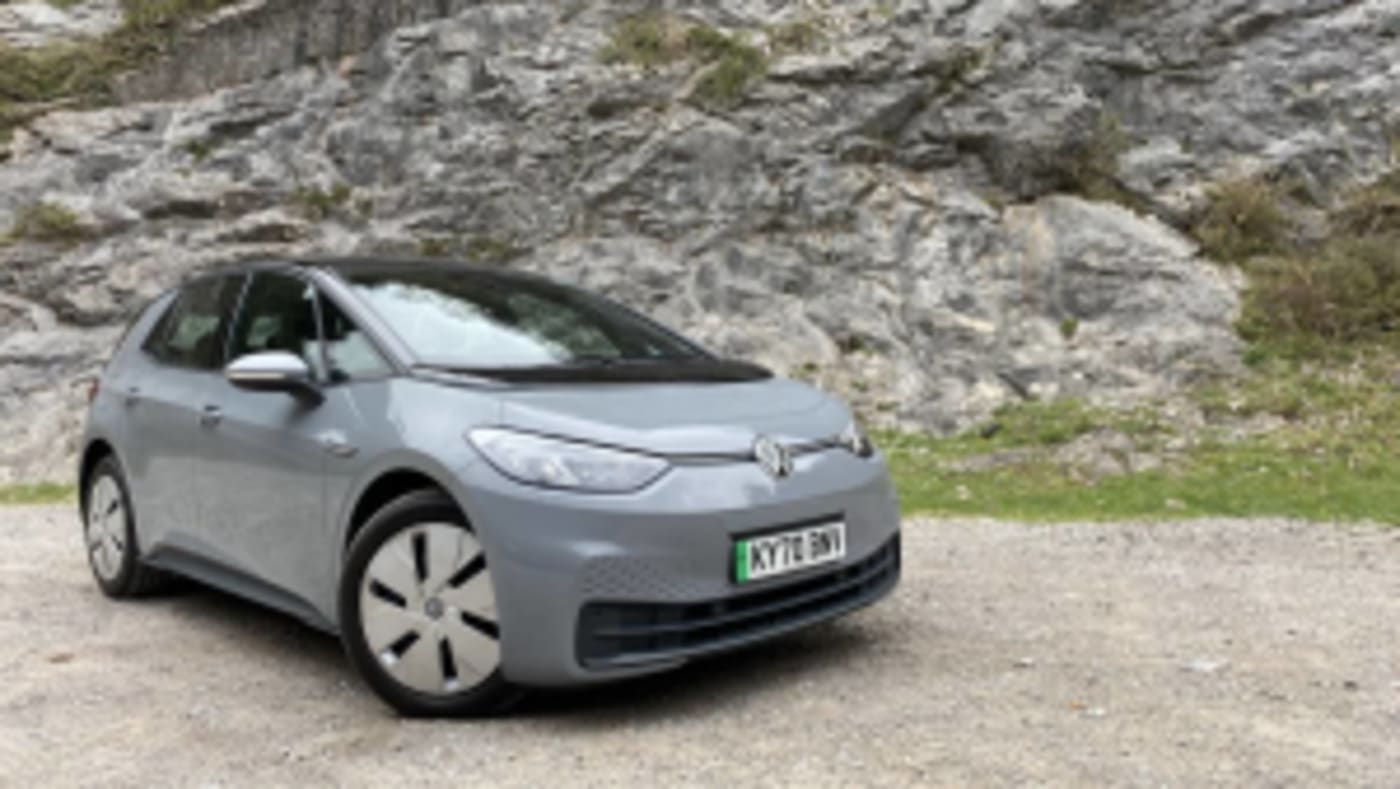
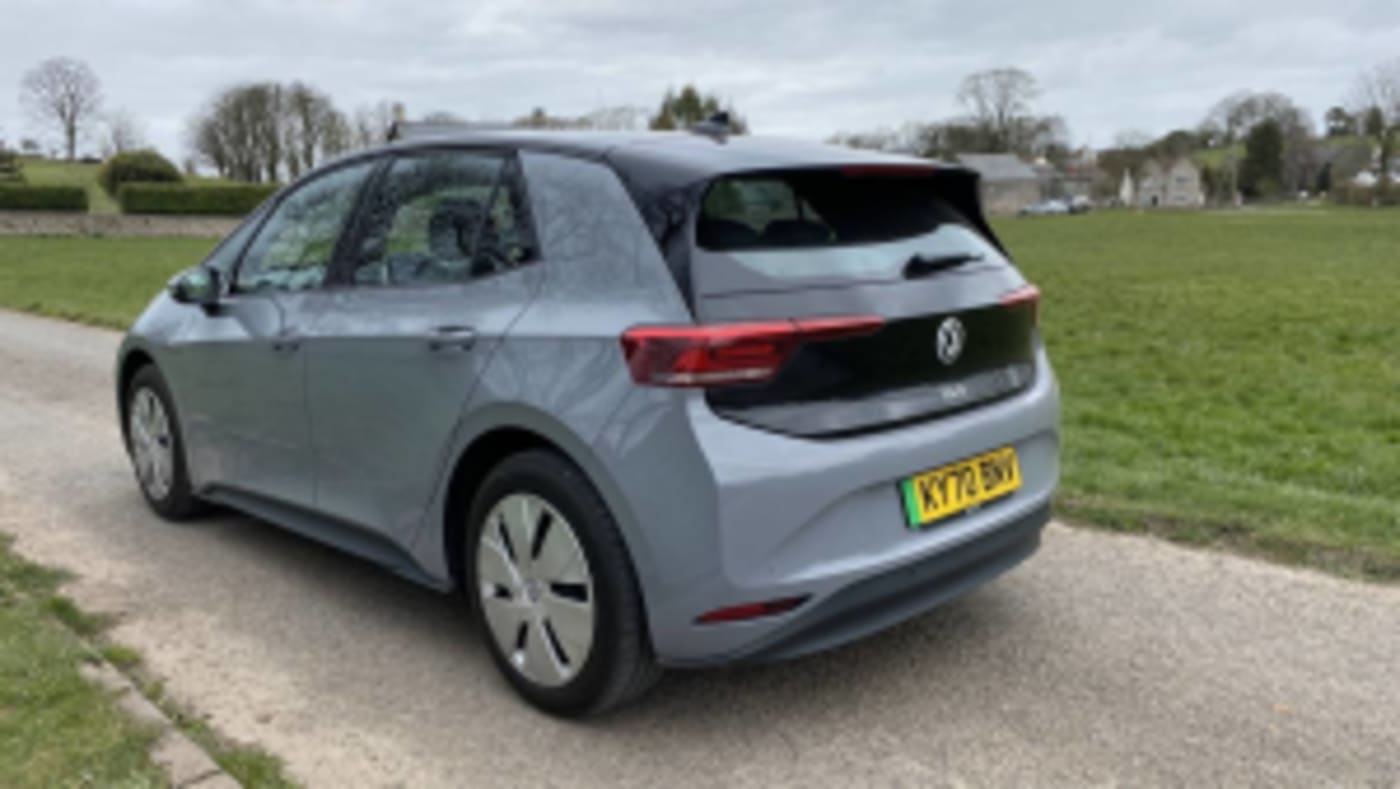
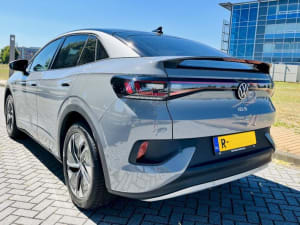
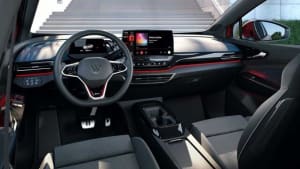

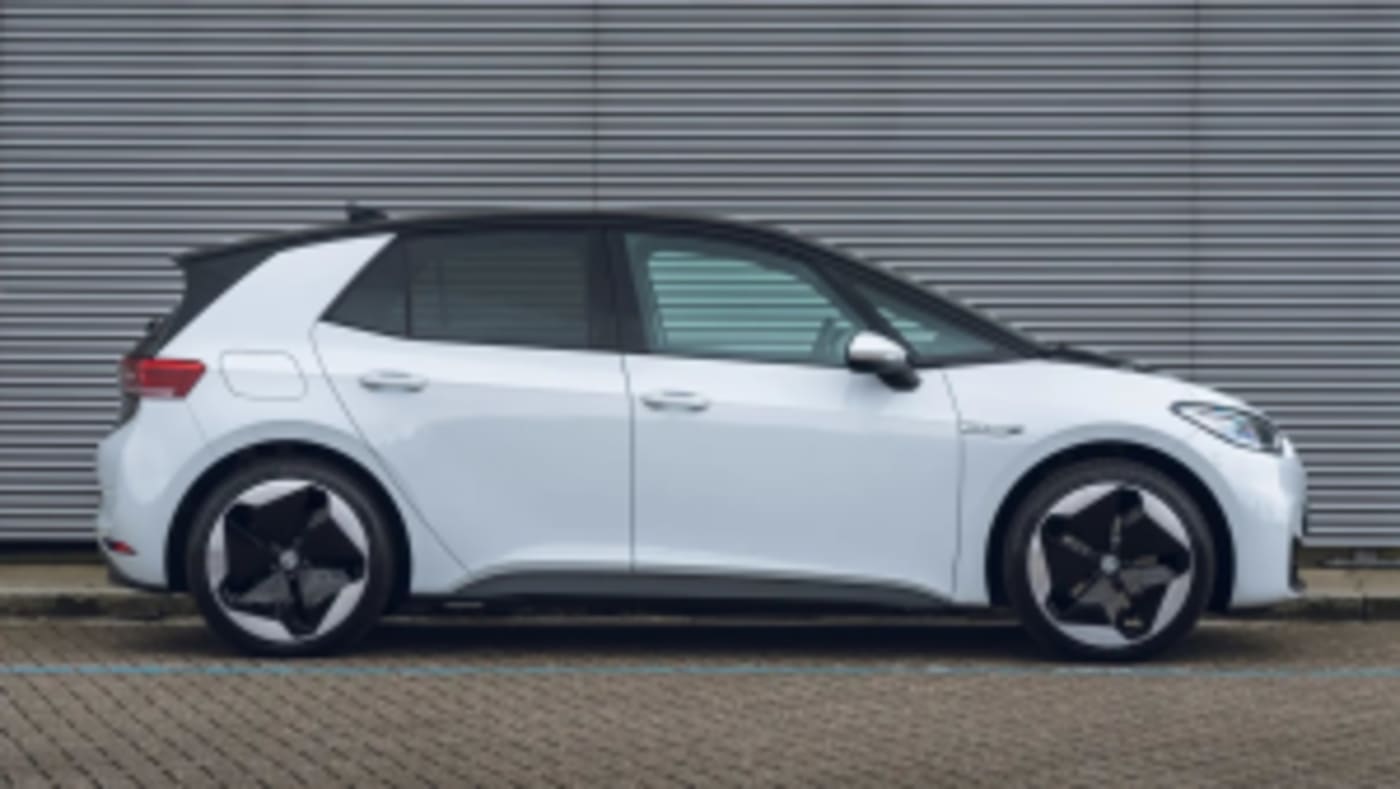
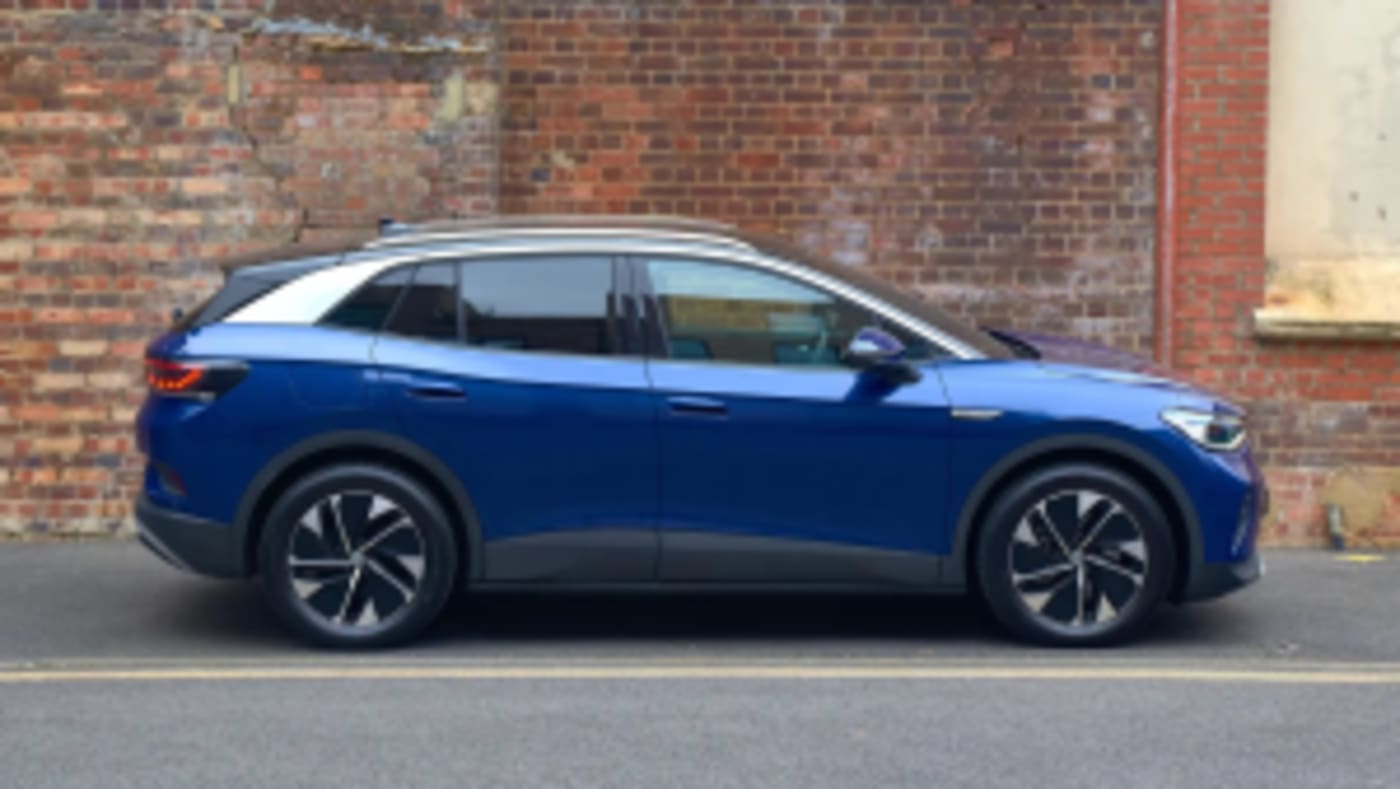
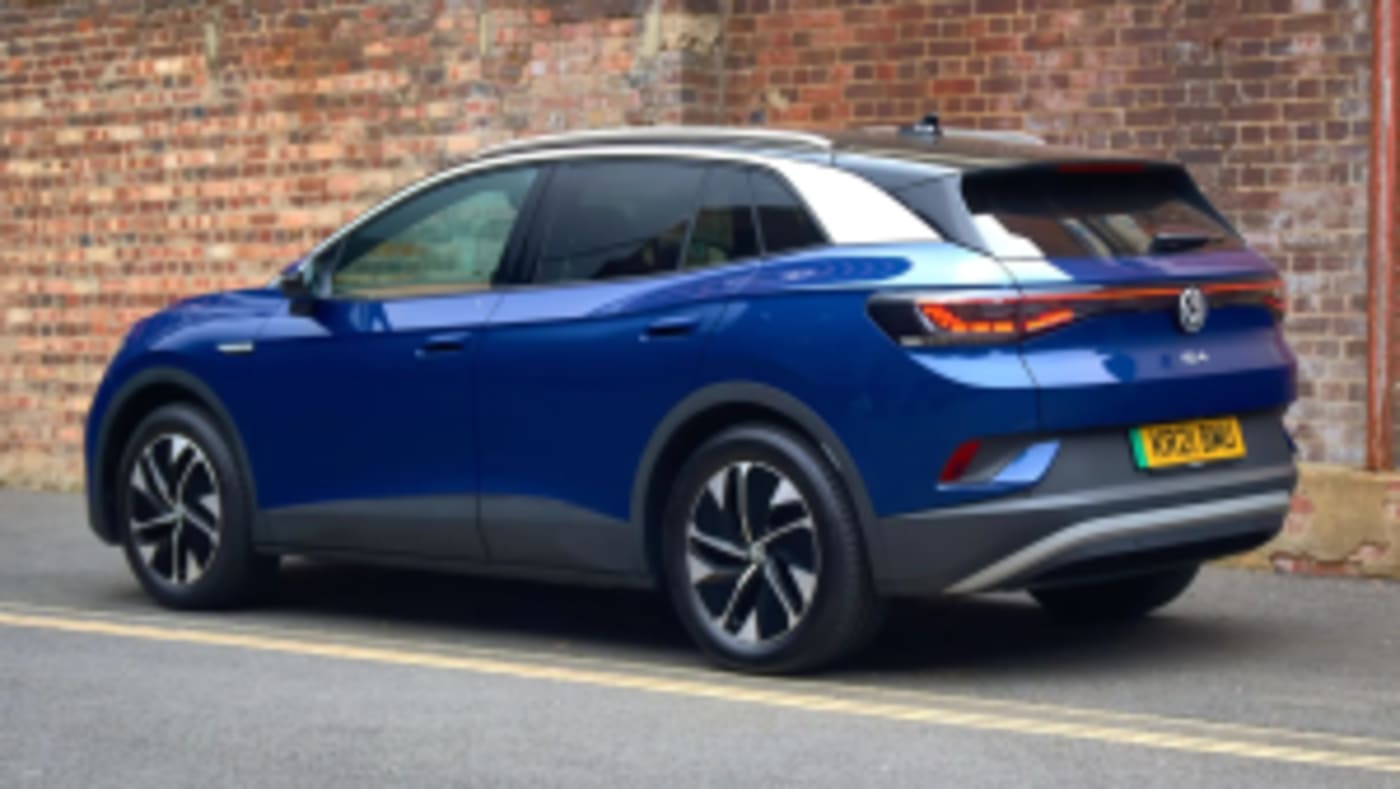
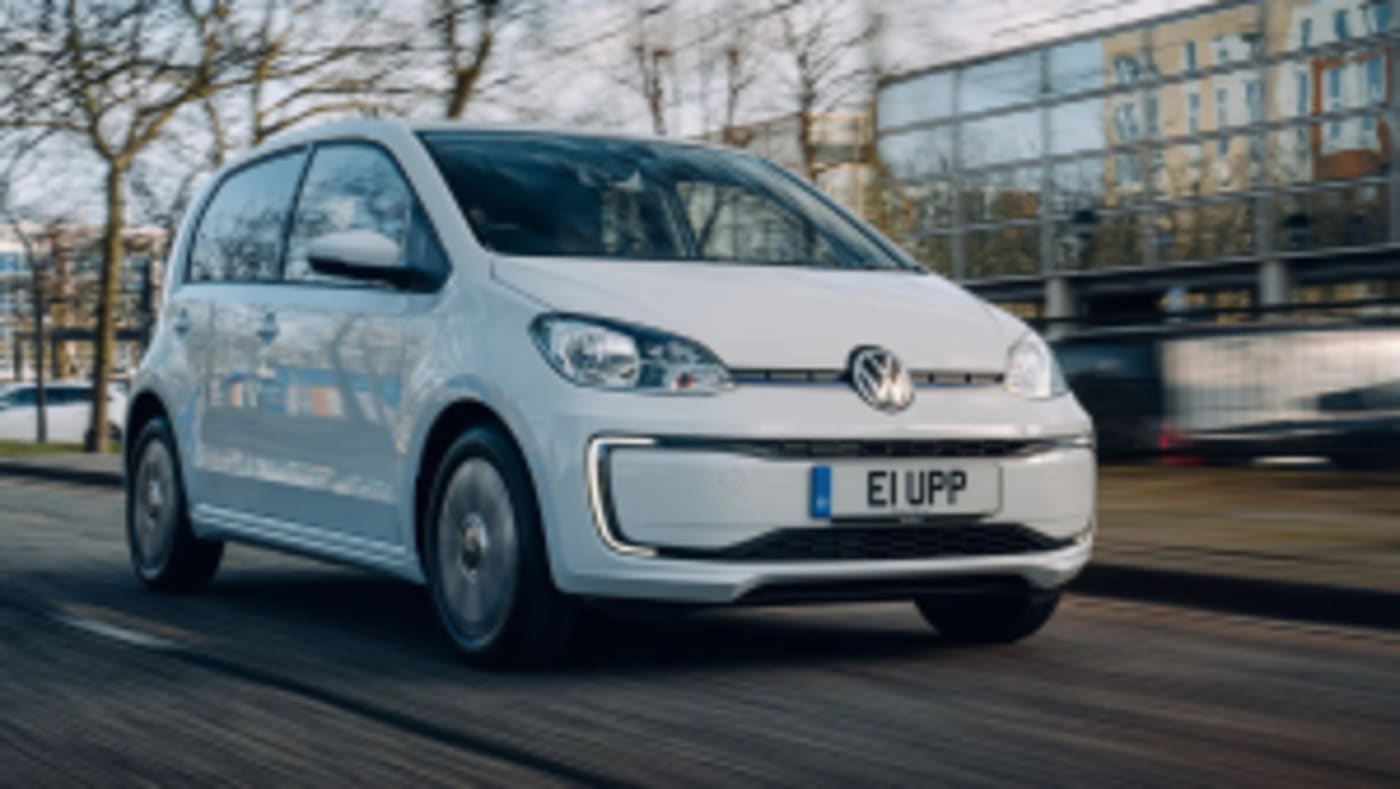
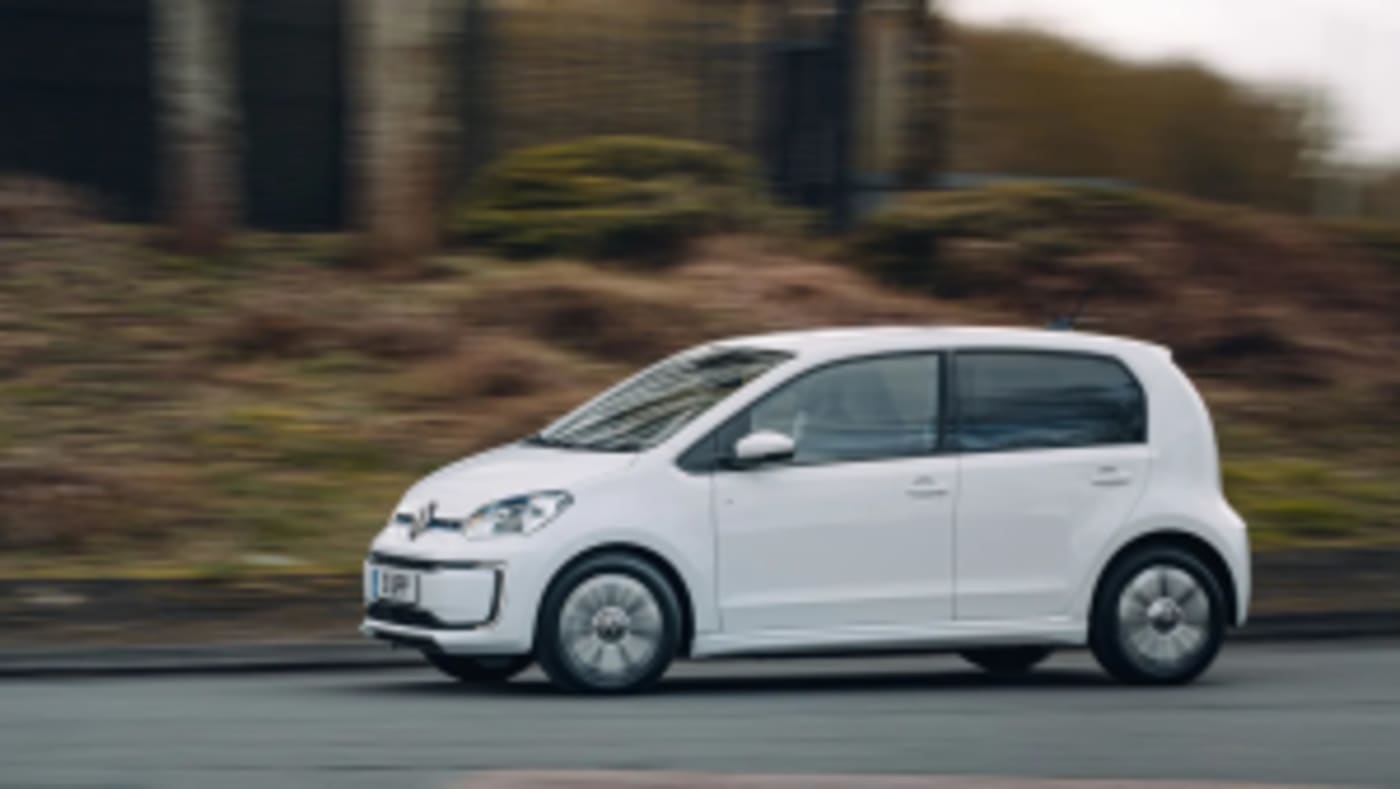
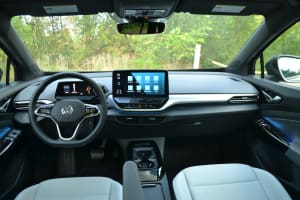
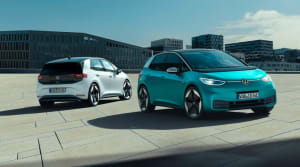
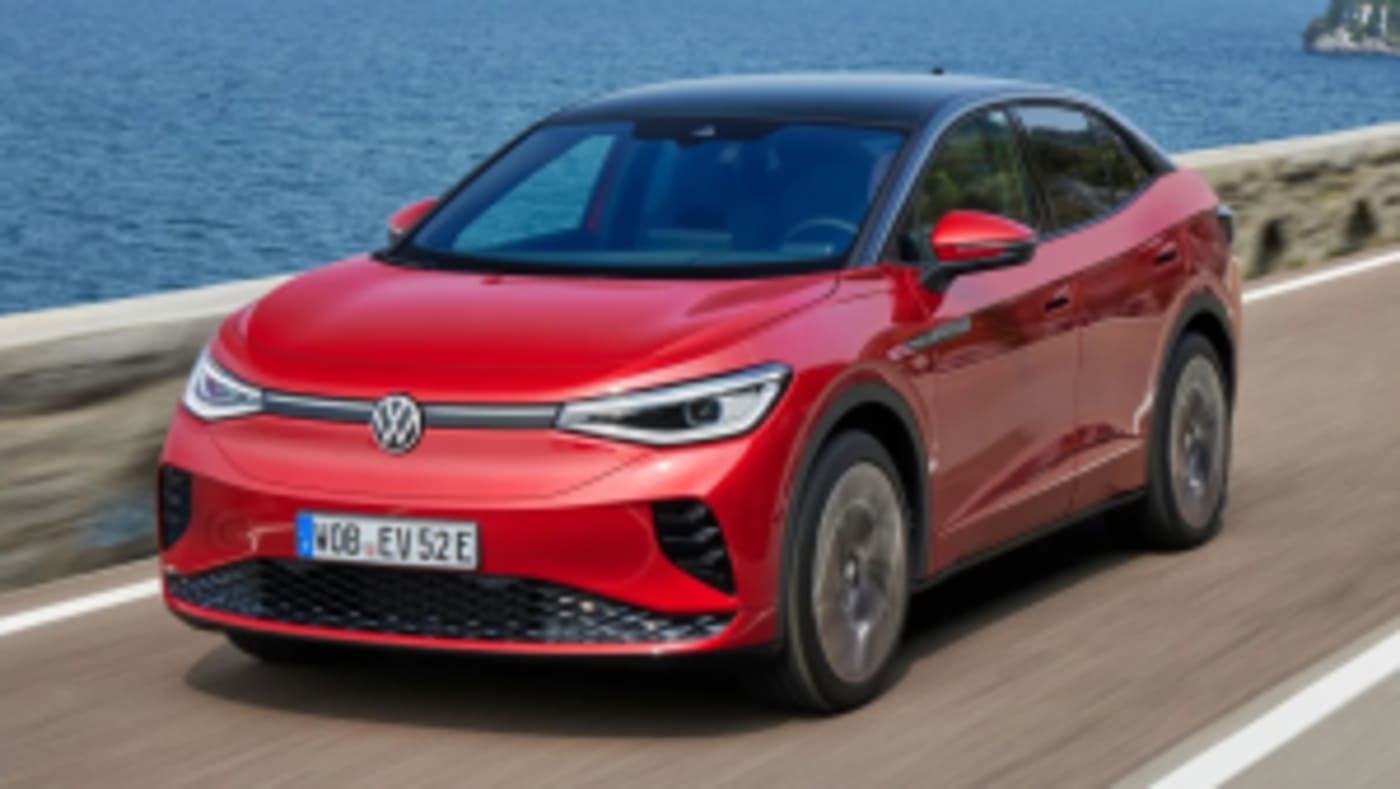

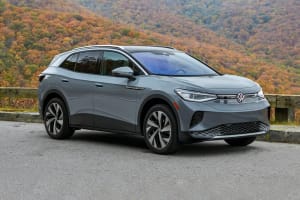
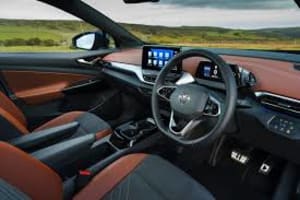
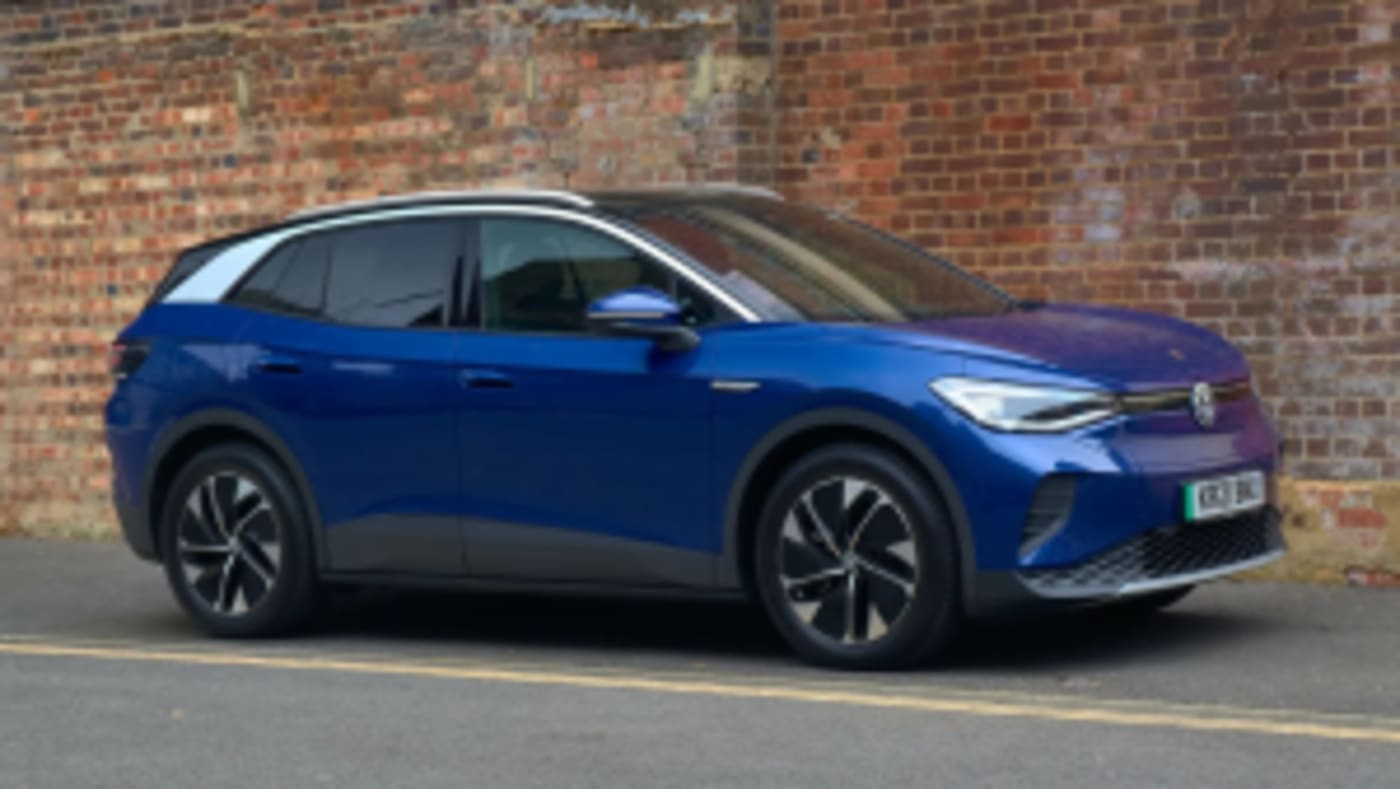
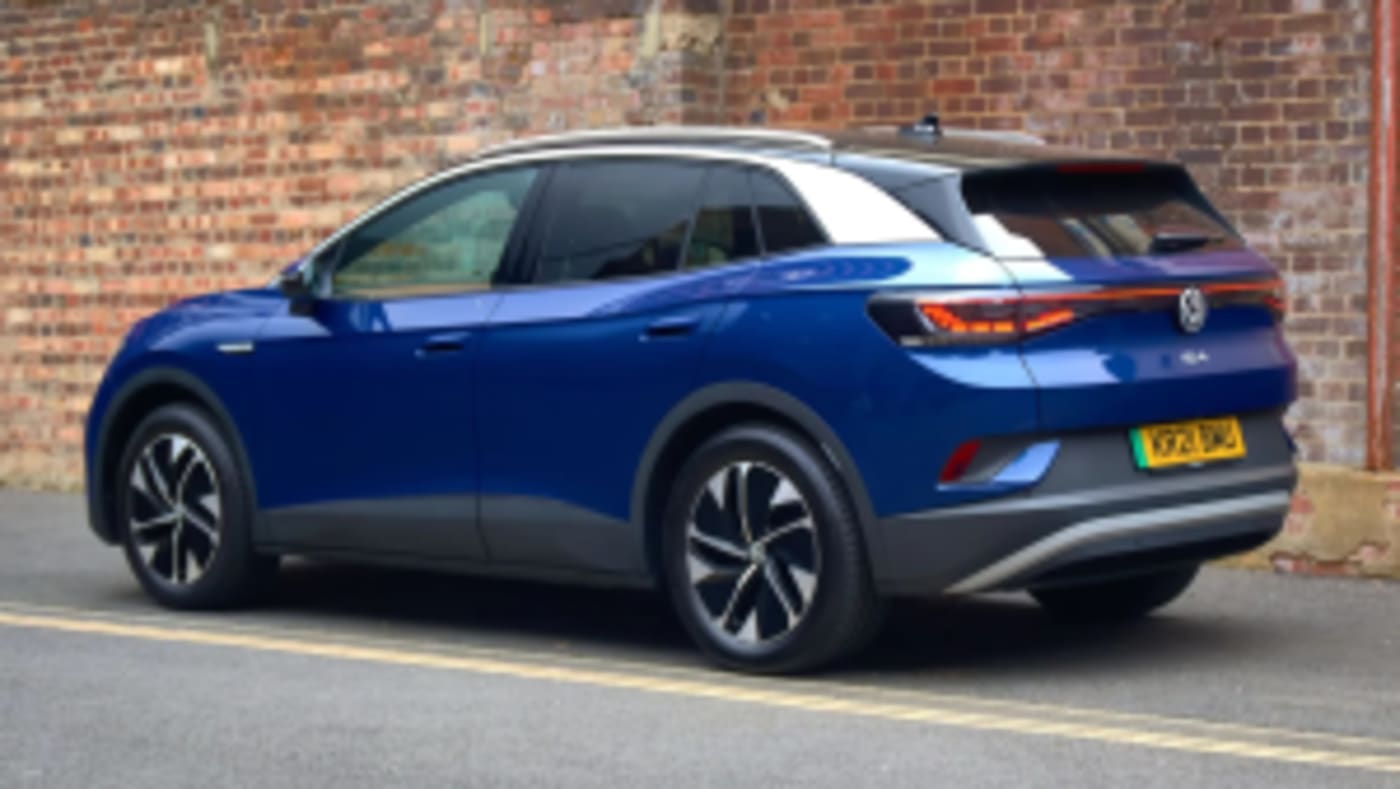
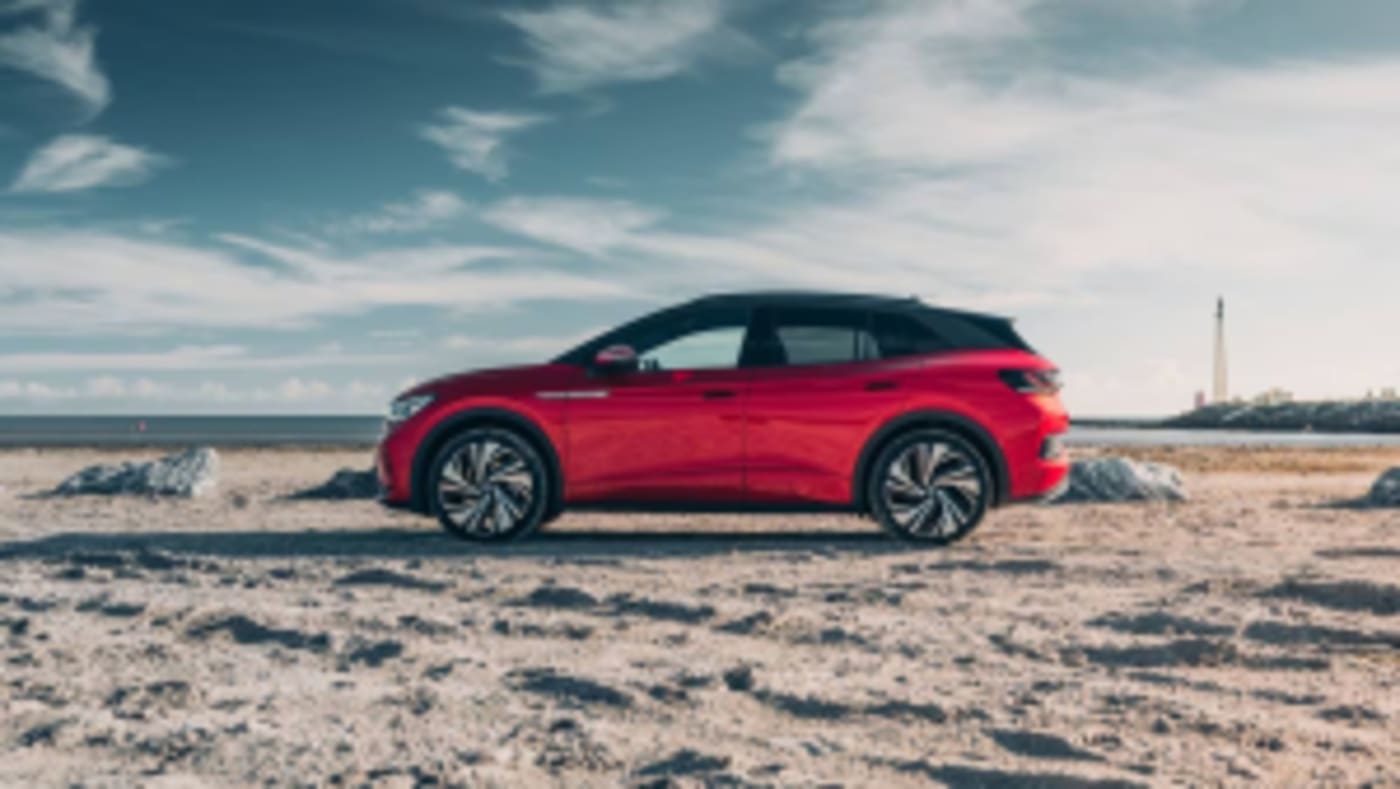
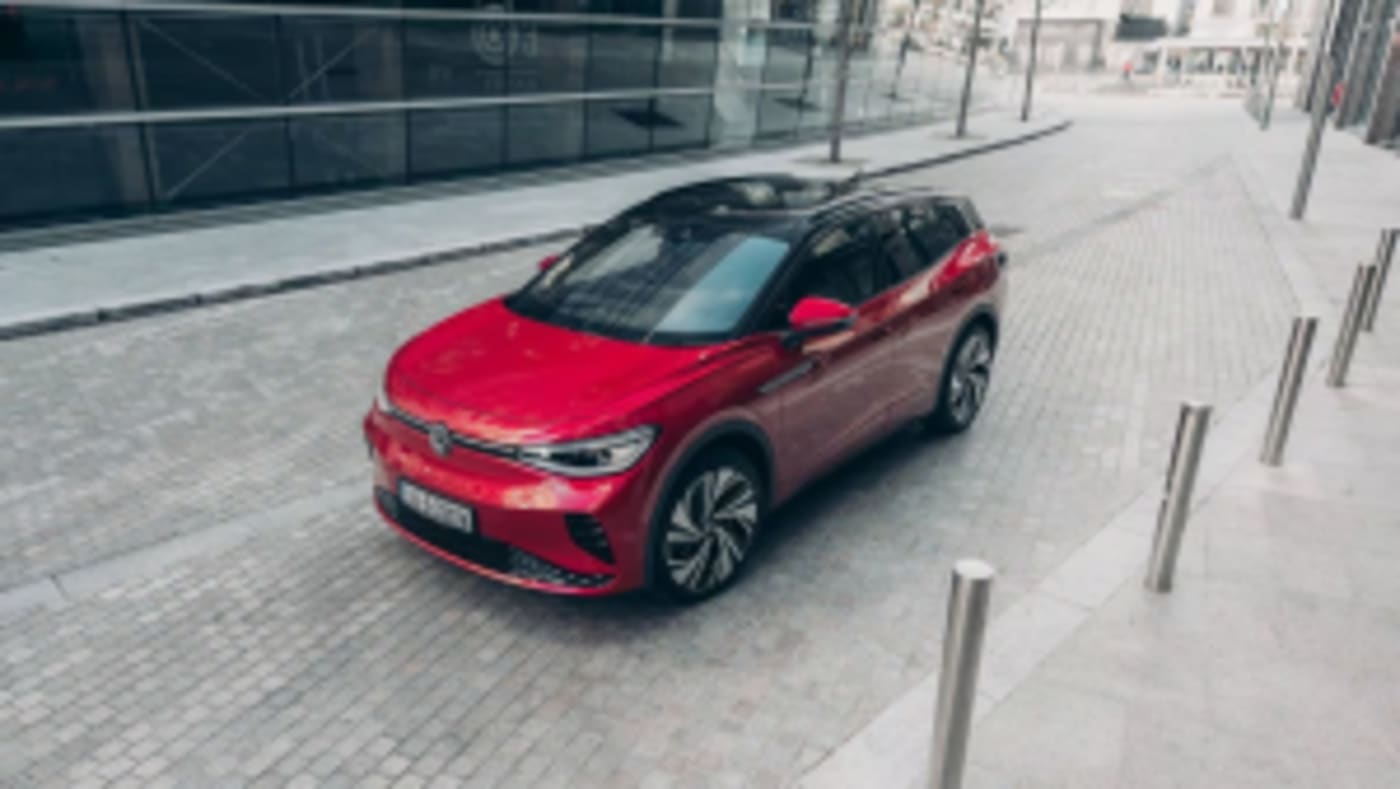
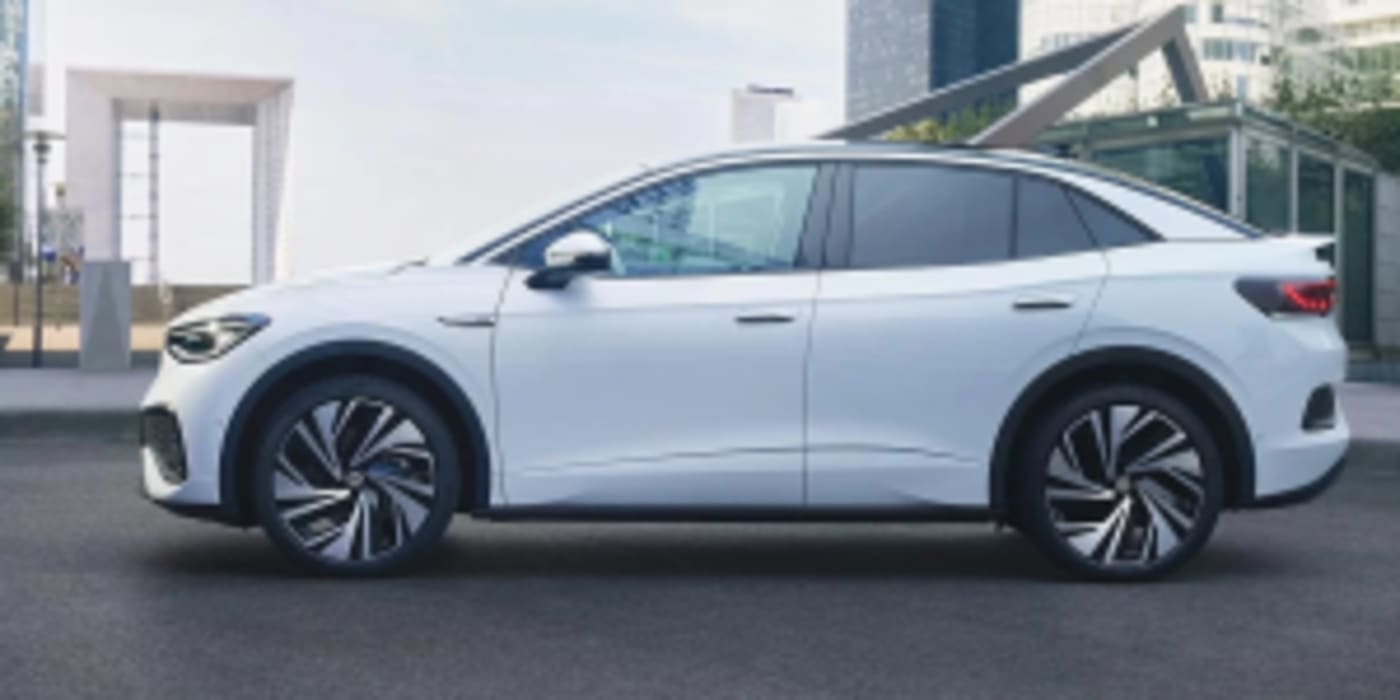
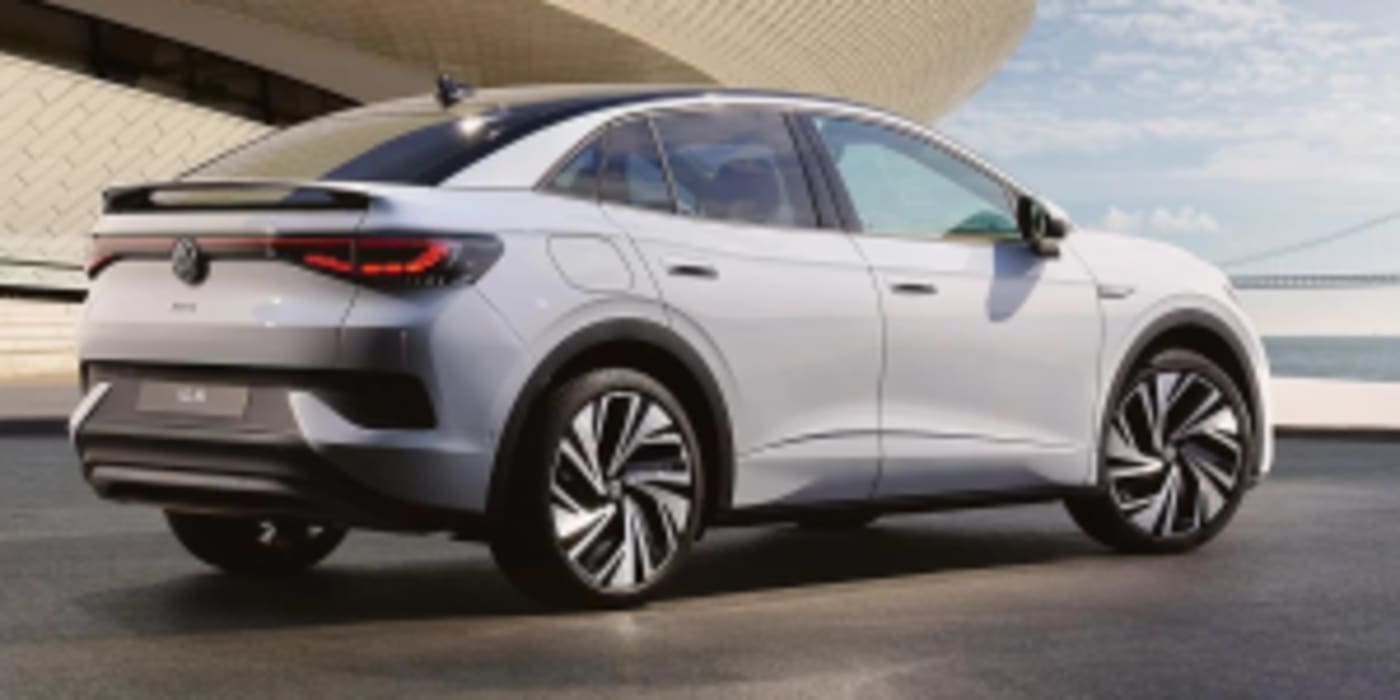

Volkswagen electric vehicles
Volkswagen is a German automobile manufacturer that was founded in 1937. The company is known for its reliable and affordable cars, and it has been a pioneer in the development of electric vehicles (EVs). Volkswagen currently has five EVs on the market: the ID.4, the ID.3, the ID. Buzz, the ID. Space Vizzion, and the ID. California.
The ID.4 is a compact SUV that has a range of up to 300 miles on a single charge. It can accelerate from 0 to 60 miles per hour in just 7.5 seconds. The ID.4 is also equipped with a number of advanced technology features, including a driver-assistance system called IQ.Drive that can help the driver to stay in lane and maintain a safe distance from other vehicles.
The ID.3 is a compact hatchback that has a range of up to 260 miles on a single charge. It can accelerate from 0 to 60 miles per hour in just 7.3 seconds. The ID.3 is also equipped with a number of advanced technology features, including a driver-assistance system called Travel Assist that can help the driver to stay in lane and maintain a safe distance from other vehicles.
The ID. Buzz is an electric van that has a range of up to 253 miles on a single charge. It can accelerate from 0 to 60 miles per hour in just 11.2 seconds. The ID. Buzz is also equipped with a number of advanced technology features, including a driver-assistance system called Car2X communication that can help the driver to avoid accidents.
Volkswagen is committed to expanding its lineup of electric vehicles in the coming years. The company plans to introduce several new EVs in the next few years, including an electric version of the Passat sedan and an electric version of the Tiguan SUV.
In addition to its EVs, Volkswagen is also investing heavily in EV infrastructure. The company is building a network of fast-charging stations across the globe. Volkswagen is also developing new battery technologies that will make its EVs even more efficient and affordable.
Volkswagen is a leader in the EV market, and it is well-positioned to continue to be a leader in the years to come. The company has a strong lineup of EVs, and it is investing heavily in EV infrastructure and battery technology. If you are looking for an affordable, reliable, and practical EV, Volkswagen is a great option to consider.
What makes Volkswagen EVs different from other brands?+
Volkswagen VW) has taken a unique approach to the electric vehicle (EV market, differentiating itself from other brands in several key ways:
Focus on affordability and practicality: Unlike some luxury brands that prioritize high-performance EVs, VW has targeted the mass market with EVs like the ID.4 and e-Golf that are more affordable and practical for everyday driving. This aligns with VW's traditional strength in producing reliable and well-rounded vehicles for the average consumer.
Modular MEB platform: VW has developed the MEB Modular Electric Toolkit platform specifically for EVs, which allows for greater flexibility and scalability in production. This platform can be adapted to different vehicle sizes and body styles, enabling VW to offer a wider range of EVs while keeping costs down.
Focus on charging infrastructure: Recognizing the importance of a robust charging network for EV adoption, VW has invested heavily in expanding charging infrastructure through partnerships and its own Electrify America network. This makes VW EVs a more viable option for drivers who might have concerns about range and charging availability.
Software and technology: VW is putting significant emphasis on developing its own software and technology for its EVs, including areas like battery management, connectivity, and autonomous driving. This focus on in-house development could give VW a competitive edge in the future, as software becomes increasingly important in EVs.
Brand heritage and legacy: VW's long history and reputation for quality and reliability give it a strong foundation for success in the EV market. Consumers may be more inclined to trust a brand with a proven track record than a newer entrant.
However, it's important to note that VW also faces some challenges in the EV market:
Competition: The EV market is becoming increasingly crowded, with established automakers like Toyota and General Motors as well as startups like Tesla all vying for market share. VW will need to continue to innovate and differentiate itself to maintain its position.
Charging infrastructure gaps: While VW has made strides in expanding charging infrastructure, there are still significant gaps, particularly in rural areas. This could be a barrier for some potential EV buyers.
Perception of brand image: While VW has a strong reputation for quality and reliability, it is still primarily associated with gasoline-powered vehicles. The company will need to work to change this perception and establish itself as a leader in the EV space.
Overall, Volkswagen's approach to the EV market has been distinctive, focusing on affordability, practicality, and building a comprehensive EV ecosystem. However, the company faces stiff competition and needs to address remaining challenges to secure long-term success in this rapidly evolving market.
What are the different models of Volkswagen EVs available?+
As of today, December 28, 2023, Volkswagen offers five main models of electric vehicles EVs:
1. ID.3: This is the hatchback entry point to the ID. family, offering a stylish and spacious interior with a range of up to 260 miles 418 km depending on the battery option.
2. ID.4: This compact SUV is Volkswagen's best-selling EV globally, thanks to its combination of practicality, range up to 275 miles or 443 km, and driving enjoyment.
3. ID.5: This sporty SUV coupe shares the same platform and underpinnings as the ID.4, but offers a sleeker design and slightly less cargo space. The range is also up to 275 miles 443 km.
4. ID. Buzz: This is the modern reincarnation of the iconic Volkswagen Bulli, and it's sure to turn heads with its retro-inspired design. The ID. Buzz is offered as a cargo van and a passenger van, with a range of up to 242 miles 390 km for the passenger version.
5. ID. California: This electric campervan is based on the ID. Buzz platform and offers all the practicality you need for your next adventure, with a range of up to 227 miles 365 km. However, it is currently only available in Europe.
In addition to these five models, Volkswagen has also announced the upcoming ID.7, a sedan that will slot in above the ID.3 in the lineup. The ID.7 is expected to launch in 2024.
How much do Volkswagen EVs cost?+
The cost of Volkswagen EVs can vary depending on the model, trim level, and options you choose. However, I can give you a general idea of what to expect:
- The Volkswagen ID.4 is the brand's most popular EV, and it starts at $38,995 for the base Standard trim level. The Pro trim level starts at $41,295 and offers a longer driving range and faster charging. The AWD Pro S starts at $46,295.
- The Volkswagen ID. Buzz is a new electric minivan that starts at $42,115 for the Pro trim level. The ID. Buzz Cargo, a commercial van version, starts at $40,625.
- The Volkswagen e-Golf is no longer in production, but you can still find used models for around $15,000 to $25,000.
In addition to the base price of the car, you will also need to factor in the cost of charging. The cost of charging an EV will vary depending on your electricity rates and how much you drive. However, it is generally much cheaper to charge an EV than to fill up a gas-powered car.
Here are some additional factors to consider when budgeting for a Volkswagen EV:
- Federal and state tax credits: The federal government offers a tax credit of up to $7,500 for the purchase of a new EV. Some states also offer additional tax credits.
- Fuel savings: EVs are much cheaper to fuel than gas-powered cars. Over the lifetime of the car, you can save thousands of dollars on fuel costs.
- Maintenance costs: EVs have fewer moving parts than gas-powered cars, which means they are generally cheaper to maintain.
What is the range of Volkswagen EVs?+
The range of Volkswagen EVs can vary quite a bit depending on the specific model and its battery size. Here's a general overview:
Estimated EPA range:
- ID.3: 240-340 miles 77 kWh battery
- ID.4: 252-275 miles 82 kWh battery), 228 miles (58 kWh battery
- ID. Buzz: 262 miles 82 kWh battery
- e-Golf: 121 miles 35.8 kWh battery
Real-world range:
- Expect real-world driving range to be slightly lower than the EPA estimates, especially in colder weather or with aggressive driving.
- For example, the ID.4 might travel closer to 240 miles on the highway during cold weather.
Factors affecting range:
- Battery size: Larger batteries offer longer range.
- Driving conditions: Highway driving, cold weather, and hilly terrain can all reduce range.
- Driving style: Aggressive driving will drain the battery faster than smooth driving.
Resources:
- You can find detailed range information for each Volkswagen EV model on their website: Link
- This article from Car and Driver provides a good overview of the ID.4 range and real-world performance: Link
How long does it take to charge a Volkswagen EV?+
The charging time for a Volkswagen EV depends on several factors, including:
1. The specific Volkswagen EV model: Different models like the ID.4, e-Golf, and Buzz have different battery capacities and charging capabilities.
2. The type of charger used: There are three main levels:
- Level 1: Standard 120V household outlet, slowest charging takes roughly 24-50 hours for a full charge.
- Level 2: 240V home-installed charger, faster than Level 1 takes roughly 7.5-11.5 hours for a full charge on the 2023 ID.4.
- Level 3 DC fast charger): Public stations deliver high-voltage DC power, significantly faster (can add 80% charge to the 2023 ID.4 in 38 minutes.
3. The battery's starting charge level: A partially charged battery will take less time to reach full than an empty one.
4. Environmental factors: Extreme temperatures can impact charging speed.
Here's a general idea of charging times for Volkswagen EVs:
- Level 1: Up to 50 hours for a full charge.
- Level 2: 7.5 to 11.5 hours for a full charge on the 2023 ID.4.
- Level 3: 30-38 minutes to get to 80% charge on the 2023 ID.4.
For a more accurate answer, please tell me the specific Volkswagen EV model you're interested in and the type of charger you plan to use.
What are the maintenance requirements for a Volkswagen EV?+
Maintaining your Volkswagen EV is essential for its optimal performance and lifespan, even though it requires less frequent attention than a gasoline-powered car. Here's a breakdown of the key maintenance aspects:
Regular service intervals:
- Minor inspection: Recommended every 15,000 km or 1 year, whichever comes first. This includes checks on essential components like brakes, tires, lights, and the charging system.
- Standard inspection: Recommended every 30,000 km or 2 years, whichever comes first. This is a more thorough inspection including the above, plus battery health checks, cooling system, cabin air filter, and more.
Battery care:
- Charging habits: Avoid frequent rapid charging and extreme temperatures when storing your car. Aim for regular level-2 charging or slow charging for optimal battery life.
- Battery level: Keep the battery between 20-80% charged for short-term storage and fully charged for long-term storage to prevent degradation.
Other maintenance:
- Brakes: While EVs experience less brake wear due to regenerative braking, they still need inspections and potential replacements of brake pads, rotors, and fluid, typically every 7,500 miles.
- Tires: Maintain proper tire pressure and rotate/balance them regularly for optimal performance and wear.
- Air filter: Though EVs lack combustion engines, they still filter air for the cabin and battery cooling system. Change the air filter as recommended by your owner's manual.
- Coolant: While coolant flushes may be less frequent than in gas cars, keep an eye on the manufacturer's recommendation for coolant and refrigerant checks in your manual.
Additional resources:
- Volkswagen owner's manual: This will provide specific service intervals and maintenance details for your particular EV model.
- Volkswagen website: Check the service and maintenance section for helpful information and resources.
- Authorized Volkswagen dealership: Schedule regular inspections and maintenance at a trusted dealership for expert care.
Remember, the exact maintenance requirements may vary depending on your specific VW EV model and driving habits. Consulting the owner's manual and trusted professionals is always best for keeping your electric car running smoothly and efficiently.
Does Volkswagen offer any tax credits or incentives for purchasing an EV?+
Unfortunately, as of today, December 28, 2023, Volkswagen does not offer any direct- tax credits or incentives for purchasing an EV in the United States. This is due to changes in the federal EV tax credit program that went into effect in April 2023.
Previously, all Volkswagen EVs, including the popular ID.4, were eligible for the full $7,500 federal tax credit.- However, the new rules require that electric vehicles must be assembled in North America and have a certain percentage of their battery components sourced from North America to qualify for the full credit.
Currently, none of Volkswagen's EVs meet these requirements, so they are no longer eligible for the full credit. However, there are a few things to keep in mind:
- Some Volkswagen EVs may still be eligible for a partial credit. For example, the 2023 ID.4 qualifies for a reduced credit of $3,750. You can check the IRS website for a complete list of eligible vehicles and their credit amounts.
- There may be other incentives available, depending on your location. Some states and local governments offer their own EV tax credits or incentives. You can check with your local government to see what might be available in your area.
- Volkswagen may offer its own incentives in the future. The company has said that it is working to comply with the new EV tax credit rules and hopes to offer its own incentives in the future.
Here are some resources that you may find helpful:
- IRS website: Link
- Plug In America: Link
- Electric Vehicle Incentives: Link
What is the warranty on a Volkswagen EV?+
Volkswagen EVs come with several warranty protections, with the battery being the key focus. Here's a breakdown:
High Voltage Battery Warranty:
- 8 years or 100,000 miles whichever comes first against manufacturing defects and degradation below 70% capacity.
- This applies to all pure electric Volkswagen models.
Other Warranties:
- New Vehicle Limited Warranty: 4 years / 50,000 miles depending on country for non-battery components.
- Corrosion Perforation Warranty: 7 years / unlimited kilometers against rust and perforation.
- Volkswagen Parts Warranty: 2 years / unlimited kilometers for genuine parts purchased from authorized dealers.
- Scheduled Carefree Maintenance: 2 years / 20,000 miles on maintenance services.
- Roadside Assistance: 3 years / 36,000 miles with free towing to the nearest Electrify America station if your vehicle runs out of charge.
Additional Points:
- The specific warranty terms may vary slightly depending on your location and model year.
- Certain factors like extreme temperatures or rapid charging can affect battery health and may not be covered under the warranty.
- Volkswagen recommends regular maintenance to optimize battery performance and lifespan.
Here are some resources for further information:
- Volkswagen website: Link
- Volkswagen UK: Link
- Volkswagen Canada: Link
Where can I learn more about Volkswagen EVs?+
There are many places you can learn more about Volkswagen EVs! Here are a few options:
- The Volkswagen website: This is a great place to start, as you can find information on all of Volkswagen's current EV models, including the ID.3, ID.4, ID.5, and ID. Buzz. You can also learn about the benefits of driving an EV, and find a Volkswagen dealer near you.
- Volkswagen EV news articles: There are many news articles and websites that cover Volkswagen EVs. A quick Google search will bring up a variety of results.
- Electric car forums and communities: There are many online forums and communities where you can talk to other people who are interested in Volkswagen EVs. This is a great way to get firsthand advice and learn about the pros and cons of different models.
- Your local Volkswagen dealer: Your local Volkswagen dealer is a great resource for learning about Volkswagen EVs. They can answer your questions, let you take a test drive, and help you find the right EV for your needs.
Here are some additional resources that you may find helpful:
- Volkswagen ID. family website: This website is dedicated to Volkswagen's ID. family of EVs. You can find information on all of the current models, as well as learn about the technology that powers them.
- Electrify America: Electrify America is a network of fast-charging stations for electric vehicles. Volkswagen is a partner of Electrify America, and you can get a discount on charging at Electrify America stations if you drive a Volkswagen EV.
